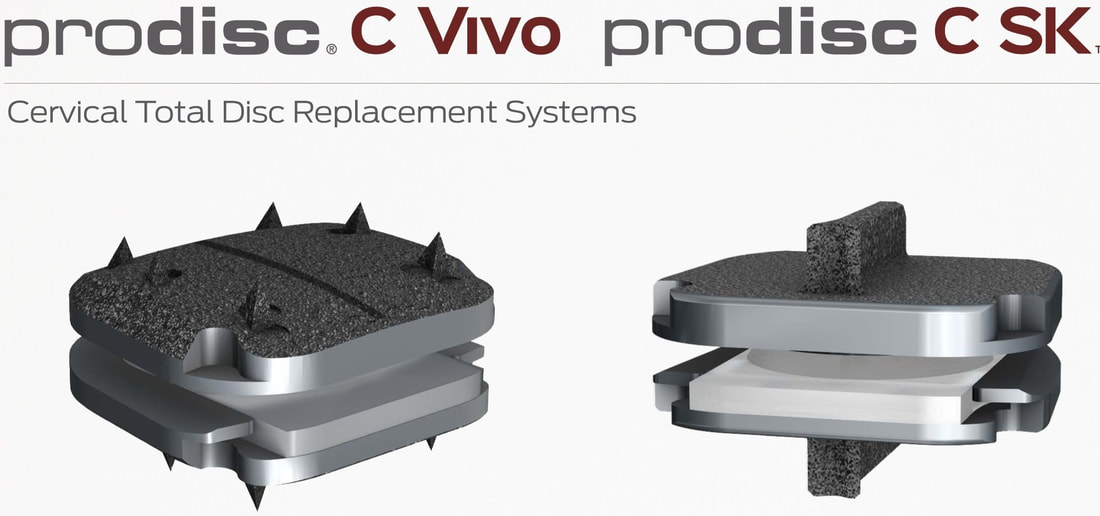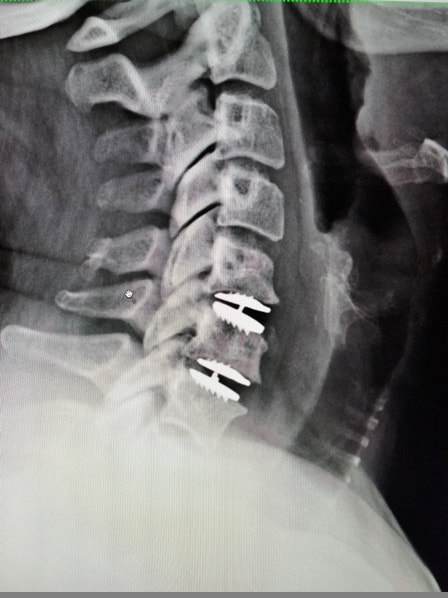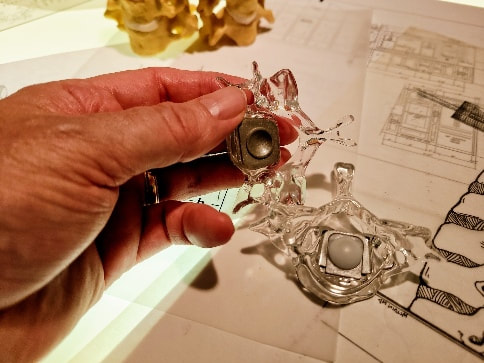What's a "Clinical Trial" and Why Should I Consider Participating? Part 3:
So why would you want to sign up for a study like the ongoing SMART Trial?
OK, lets talk about my surgical practice specifically. In the studies I participate in, patients are signing up to get AT LEAST the best implant and surgery available under FDA guidelines today, and they have AN OPPORTUNITY to get the next-generation implant, not currently available to other patients for this specific application.
In the studies I participate in, like the ongoing SMART trial sponsored by Centinel Spine and carried out under the strictest FDA guidelines, the implant devices are not new to the market - they have been in use for years, sometimes more than a decade, outside the US or for more limited application in the US, and have already passed several levels of clinical validation and safety testing. For instance, in the ongoing SMART trial for two-level cervical disc replacements, one of the "test" implants (C-Vivo) has been in use since 2009, and has been used over 25,000 times around the world before being selected for the ongoing two-level study.
In fact, that implant is FDA approved for single level use in the US at this time. The other study implant (C-SK) is a modification of the FDA approved device that has been used for single level disc replacement in the US for the last 15 years, with over 100,000 successful implantations. And the Control device? That is the Mobi C implant that is one of the most widely used disc replacement devices in the world, and the implant I use almost exclusively for two-level surgery for all other patients.
The SMART Trial itself is very specific, and it's studying a procedure that, currently, is not an option for most patients. The only patients that could participate are those with two-level cervical disc herniations or disc degeneration, with persistent neck and arm pain severe enough to warrant surgical care. The trial isn't for patients with a single level disc herniation, and it can't include patients with several levels of degeneration, a previous fusion, or such severe disc disease that the spine has become rigid or deformed. There are good treatments for those problems, but the clinical trial isn't the place for those patients.
Patients in the SMART Trial are randomized to one of two treatment groups. Both groups get exactly the same preoperative and post-operative care and follow-up, but one group will get the Study Implants (prodisc C Vivo or prodisc C SK) and one group will receive the Mobi-C implant at the time of surgery.
Patients in the SMART Trial are randomized to one of two treatment groups. Both groups get exactly the same preoperative and post-operative care and follow-up, but one group will get the Study Implants (prodisc C Vivo or prodisc C SK) and one group will receive the Mobi-C implant at the time of surgery.
The technique for surgery is the same, the surgical time is the same and the post-operative care and activity levels are the same. Patients that don't care to enroll in the study, or don't qualify, will still get the same preoperative care and preparation as any surgical patient, and if they choose to go through with disc replacement surgery, they will receive the same Mobi-C implants at the time of their surgery, delivered in the same way.
The further advantage for some patients is that, if they are having trouble getting approval for surgical treatment because of insurance or other issues, the study sponsor will often cover some or all of the costs of treatment and follow-up. This means that any patient that is indicated for the surgery and motivated to participate can have an opportunity regardless of their financial status or insurance situation.
Is a clinical trial right for you? It depends on what you are suffering from, and what your circumstances are, to some extent, but it always depends on whether you are comfortable with the study and really want to participate. If you are interested in this study, I'd invite you to contact my study coordinator, Jayson Zadzilka, or call 330-205-1334.
The further advantage for some patients is that, if they are having trouble getting approval for surgical treatment because of insurance or other issues, the study sponsor will often cover some or all of the costs of treatment and follow-up. This means that any patient that is indicated for the surgery and motivated to participate can have an opportunity regardless of their financial status or insurance situation.
Is a clinical trial right for you? It depends on what you are suffering from, and what your circumstances are, to some extent, but it always depends on whether you are comfortable with the study and really want to participate. If you are interested in this study, I'd invite you to contact my study coordinator, Jayson Zadzilka, or call 330-205-1334.



